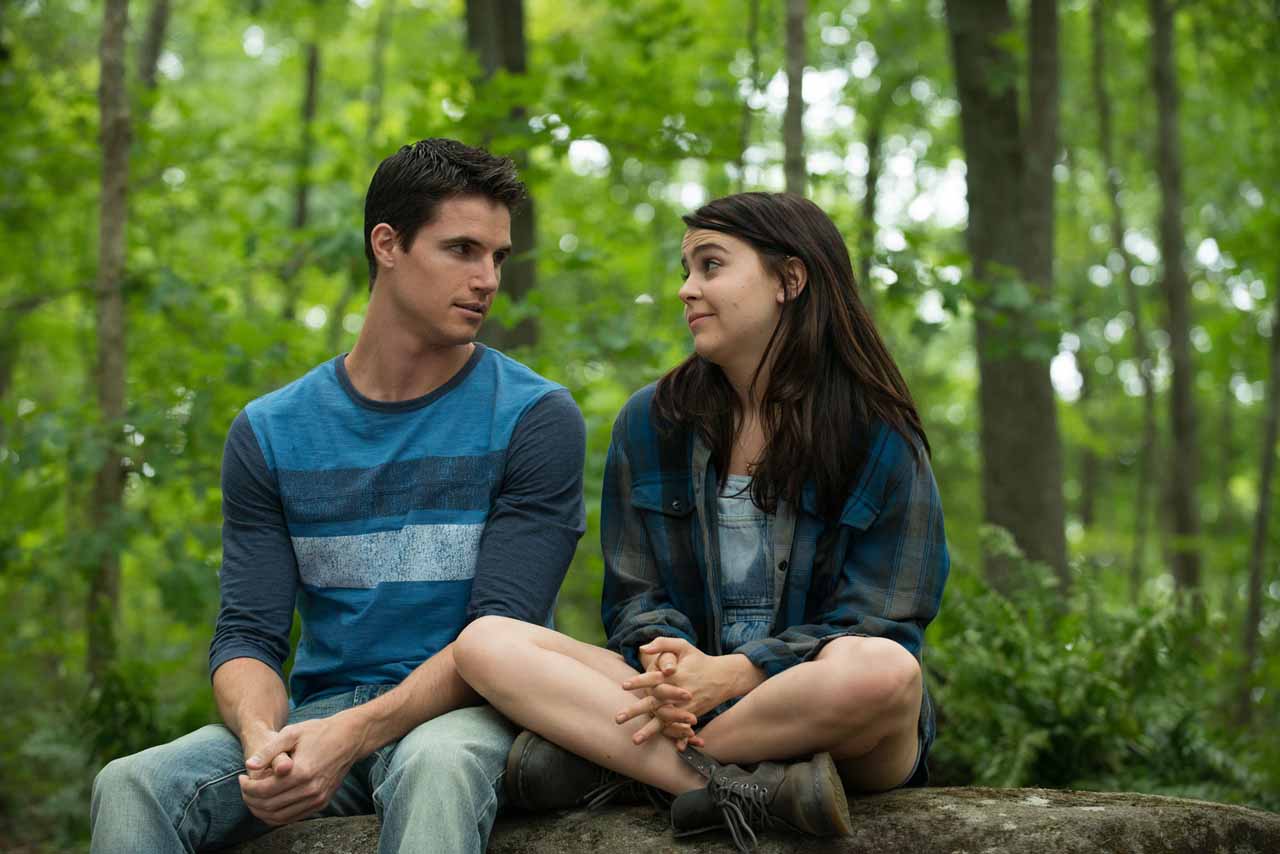

Ah, high school: a hotbed of friend drama, teen angst, and a realm often haphazardly portrayed in Hollywood. “The DUFF,” directed by Ari Sandel, tries to be an original contribution to the teen comedy genre, but is ultimately unable to reinvent overused tropes, no matter how many hashtags it employs.
Bianca Piper (Mae Whitman) is the DUFF, or “Designated Ugly Fat Friend,” as sexy football jock Wesley Rush (Robbie Amell) calls her at a party. Bianca is the approachable one, the one who makes her hotter friends look good. But — of course — she doesn’t want to be the approachable one; she wants to be the dateable one. So, Bianca recruits Wesley to help her, promising to help him pass chemistry in return. Love triangles, a jealous ex-girlfriend, sappy monologues about self-respect and the world’s most unrealistic romantic pairing ensue.
Don’t get me wrong, I love a good teen rom-com and I quite enjoyed “The DUFF.” Mae Whitman is stellar as Bianca, being both witty and believably awkward. Robbie Amell is the classic pretty boy with a troubled home life, though his porn jokes and douchey Project Runway references make him ironically refreshing and actually quite realistic. Their chemistry is perhaps the best I’ve seen from the genre and that might be the problem with this movie.
The entire teen comedy genre is obsessed with the secretly confident, awkward girl who doesn’t actually exist. “The Princess Diaries,” “Mean Girls,” “Easy A” — they all have their awkward heroines, who are supposedly socially inept but who at critical moments eloquently stand up for themselves. Bianca in particular is so witty and outspoken in front of Wesley that it’s hard to believe that she has trouble talking to boys at all. In these films’ incessant validation of extroversion, they miss the point: What happens when you can’t stand up for yourself? What happens when you just can’t speak?
The movie presents Bianca with humiliation after humiliation in such extreme doses that it just isn’t relatable. She becomes the victim of a viral Snapchat-style video taken without her consent — complete with kitschy lettering and slow-mo — of her humping a mannequin while screaming her crush’s name. She goes on a date with said crush, only to be told that he actually wants her hotter friends. These examples, though funny, fall flat because oftentimes the real tragedy of high school isn’t in the school-wide videos or upfront rejections, but in the everyday struggle to stay relevant.
The biggest problem with “The DUFF” is its self-indulgent belief that it’s revamping the teen-comedy genre through its ceaseless social media references and the occasional plot twist but it ultimately follows the same tired formula: Girl is awkward, girl relies on boy for self-affirmation, girl gets a makeover and boy realizes it was her he loved all along! Cue the tears. “The DUFF” smugly demonstrates it knows what Tinder and retweeting mean, but the extent of its progressiveness stops there. “The DUFF,” like so many teen comedies before it, constructs and promises a Prince Charming fantasy that young girls never needed but, in watching these movies, often begin to want over the years. Sam Baker and Jake Ryan in “Sixteen Candles,” Cady and Aaron Samuels in “Mean Girls,” and now Bianca and Wesley in “The DUFF” have promised time and time again that the social hierarchy doesn’t matter as long as you ditch your weird horror-movie T-shirts and put on a good bra. The entire movie is an uncomfortable Pygmalion imitation, with the socially successful male educating his socially inferior female friend. At some points, the film attempts to subvert the male gaze — there’s a cute scene in which Bianca walks into the men’s changing room, shirtless guys scream, and she says “You’re embarrassed? Now you know how it feels.” However, the final scene blatantly reverts to a male-centric point-of-view as Bianca, clad in a flattering Homecoming dress, walks on to the dance floor. We don’t see her, of course, until alpha male Wesley does, in the world’s most obvious up-down tilting point-of-view shot.
I got the feeling that Sandel was trying to critique the genre, but his more progressive intentions were drowned out in a sea of improperly-used hashtags. “The DUFF” attempts to promote a message of self-love, cheekily proclaiming that “only you can label yourself!” at the movie’s end, but it can’t help but throw in the boyfriend, whose decision to choose her over mean girl Madison (Bella Thorne) is given such emphasis that we forget Bianca supposedly loved herself first.
The movie has its moments. When Bianca successfully asks out Toby, she throws her hands out and rainbow fireworks go off in the background. It’s a moment that wonderfully captures her triumph in the campiest of ways. The film is notably self-aware, giving nods to many of the genre’s greats. The film’s title scene reminds the audience of the stereotypes first given life by “The Breakfast Club”: the jock, the brain, the princess, etc. But in simply recounting and not subverting the tropes of the genre, “The DUFF,” unfortunately, has no staying power. And perhaps the most unrealistic part of the movie comes when Bianca pens her “Tales of a Teenage DUFF” in the school newspaper, garnering thousands of online comments. A student body that actually reads the school paper? Now you’re just being ridiculous, Ari Sandel.